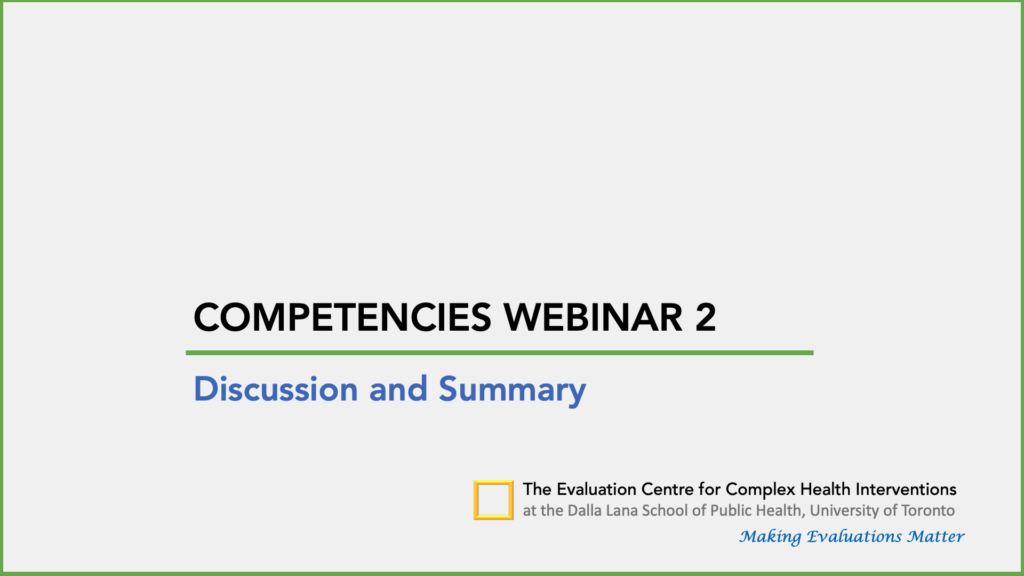October 04, 2021
This is the second of a three-part series where we discuss the implications of the pandemic for rethinking evaluator competencies in 2021.
Our focus in the second webinar of the series was on rethinking evaluation criteria in a time in which there is a need to be adaptive and nimble in our programming.
Questions probed include:
- Do we need to revisit evaluation criteria by which we judge the success of our interventions?
- How do we train evaluators and planners to be responsive to the realities of wide-spread inequities and the importance of planning for sustainability as interventions are implemented?
- How do we measure the value added of interventions given the complexity and the heterogeneities of the social landscape in which interventions are implemented?
One of the features of this webinar was its focus on learning from leaders in policy and practice settings on what they would consider useful evaluations. The presenters for this webinar are cutting-edge thinkers who have pushed for more responsive evaluation approaches to address inequities/sustainability and for a decolonized approach to knowledge building.
Presentations and slides
Trish Newport – Deputy Manager responsible for emergency response for Doctors Without Borders/Medecins Sans Frontières (MSF)
Eugene Richardson – Assistant Professor of Global Health and Social Medicine at Harvard University
Sonalde Desai – Director of the National Data Innovation Centre of the National Council of Applied Economic Research (NCAER) in New Delhi, and Professor of Sociology at the University of Maryland
Natalia Kosheleva – a leading evaluator from Russia and former President of the International Organization for Cooperation in Evaluation and a Co-chair of EvalPartners
Kultar Singh – a leading Indian evaluator and CEO of Sambodhi Research and Communication in Delhi, India
